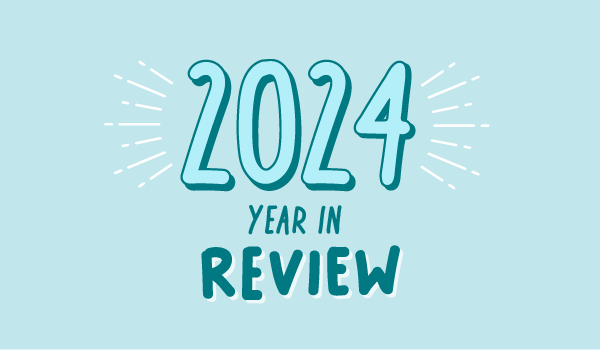DDP Blog: Best of 2024

Take a look back as we recap our most popular posts of 2024, plus three posts you may have missed.
This year, the Diabetes Discoveries and Practice Blog published posts on a wide range of topics, about the latest clinical practice standards in the updated ADA Standards of Care to helping patients better understand kidney function. Below, we highlight some of the most popular posts of the year along with some posts you may have missed.
Most Popular Posts of 2024
What’s New in the 2024 ADA Standards of Care?
The American Diabetes Association (ADA) publishes annual updates to the Standards of Care in Diabetes to inform health care professionals about the latest research evidence on diagnosing and managing diabetes. The 2024 Standards of Care included revisions to nearly all sections, as well as detailed recommendations for older adults, children, and adolescents.
Help Your Patients Understand the Role and Function of Their Kidneys
Do your patients know that diabetes is a leading cause of kidney disease? The Centers for Disease Control and Prevention reports that 1 in 3 adults with diabetes may also have chronic kidney disease, meaning that one-third of your patients who have diabetes may develop or have kidney disease. In support of National Kidney Month, you can help your patients get to know their kidneys by discussing how they work, why they’re important, and ways they can take charge of their kidney health. Not sure how to start the conversation? Resources including downloadable flyers, sharable social media posts, and an educational video are available.
Interesting Posts You May Have Missed
What Are the New Horizons in Testing and Treating Early Stages of Type 1 Diabetes?
Until recently, type 1 diabetes was often diagnosed when beta cell function was critically lost, and taking insulin was needed for people to survive. In many instances, people would only find out they had the disease in the emergency room when they showed up with diabetic ketoacidosis. Kevan Herold, MD, discusses indications to test for early stages of type 1 diabetes and treatment to delay the disease from progressing.
What Are the Unique Challenges for Youth with Diabetes?
Youth with type 1 and type 2 diabetes face different challenges than adults. Jenise Wong, MD, PhD, pediatric endocrinologist, and associate professor of pediatrics at UCSF School of Medicine, talks about the unique needs for youth—including school-age children and teenagers—who have diabetes. She discusses how health care professionals can help youth access and use diabetes technology, manage barriers to care, and transition to independence.
What Can You Tell Your Patients About Intermittent Fasting and Type 2 Diabetes?
Early research suggests that intermittent fasting may help some people lose weight. However, scientists are still studying how intermittent fasting affects people with diabetes. Krista Varady, PhD, professor of nutrition at the University of Illinois, Chicago, talks about some of the early findings on intermittent fasting and how health care professionals can advise their patients who are considering whether to try an intermittent fasting eating plan.
What content did you enjoy most from the blog over the past year? What would you like to see more of in 2025? Let us know in the comments below.


Comments